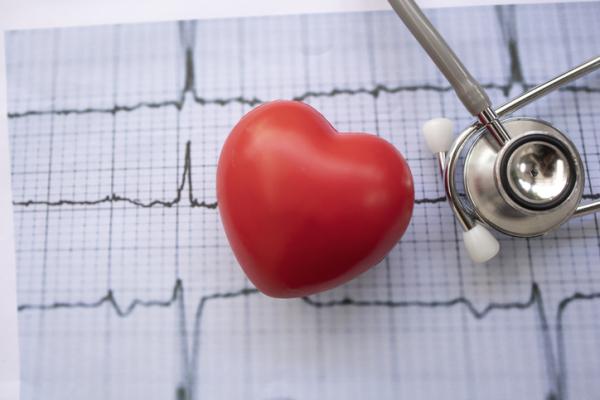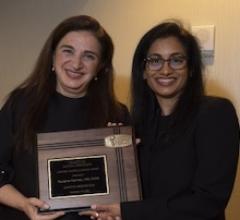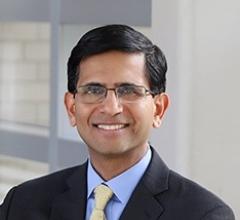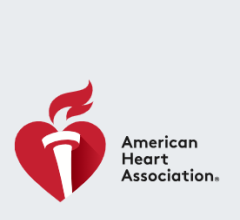
The American Heart Association (AHA) has named The Ohio State University, the University of California Davis and Virginia Commonwealth University as awardees of $15 million scientific research grants to teams to study the mechanisms of how chronic stress affects cardiovascular health.
May 31, 2023 — The American Heart Association (AHA) has announced that teams of research scientists from three universities will lead an innovative $15 million project to study the biological mechanisms of chronic stress that can increase cardiovascular disease risk. The AHA’s Strategically Focused Research Network (SFRN) on Biologic Pathways of Chronic Psychosocial Stressors on Cardiovascular Health will focus on learning more about how the body responds to chronic stress, as well as how certain interventions may help reduce health risks.
Chronic stress is recognized as an independent risk factor for the development of cardiovascular disease, and it is known to negatively impact the overall health of people living with heart disease, noted the announcement from the Dallas, TX-based association. It noted that psychosocial stressors are those having both a psychological and social component, and include conditions and situations such as work, relationship or marriage difficulties; living in isolation; a lack of social support or basic resources among others.
“A single, stressful situation sets off a chain of events, the body releases adrenaline, a hormone that temporarily causes breathing and heart rate to speed up and blood pressure to rise. These reactions trigger a ‘fight or flight’ response,” said Michelle A. Albert, M.D., M.P.H., FAHA, 2022-23 volunteer president of the American Heart Association. Albert added, “When a person is constantly exposed to this kind of stress, the long-term activation of the body’s stress response system, along with increased inflammation and the prolonged exposure to cortisol and other stress hormones, takes a significant toll on the cardiovascular system.”
According to Albert, people of color face a greater risk of poor health outcomes due to chronic stress, depression and anxiety linked to psychosocial stressors, particularly those related to social and economic inequality, discrimination, systemic racism and other societal factors.
“While we continue to learn more about the societal triggers that lead to chronic stress, we need to also have a better understanding of the specific cellular and molecular signaling pathways activated in response to chronic psychosocial stressors. And we need to identify specific stress interventions at population levels and determine how those interventions relate to underlying molecular mechanisms,” said Albert, who is the Walter A Haas-Lucie Stern Endowed Chair and professor of medicine, director of the CeNter for the StUdy of AdveRsiTy and CardiovascUlaR DiseasE (NURTURE Center) and associate dean of admissions at the University of California, San Francisco. She added, “The multidisciplinary teams working on this new initiative bring extensive experience and expertise, along with the commitment and passion needed to make a real impact.”
Research Project Details
According to the AHA, the funding will include a collaborative research project across all three groups, as well as the following four-year grant projects, which began on April 1, 2023:
Physical activity Reduces Effects of psychosocial stress And improves Cardiovascular Health (PREACH)
Led by Kristin Stanford, Ph.D., an associate professor in physiology and cell biology at The Ohio State University (OSU) in Columbus, teams of scientists from OSU and Meharry Medical College, an Historically Black College and University (HBCU) in Nashville, Tenn., will collaborate to conduct three different projects to determine if exercise can protect against stress-induced heart disease.
The scientists will specifically be studying the correlation between exercise and changes in the gut bacteria, which is known to influence the development of heart disease. Two of the studies will be basic science research using mouse models – one examining hearts and gut bacteria to see if exercise can reverse the effects of stress on heart health and the other exploring how stress or exercise in a mouse mother can affect her offspring. The third study will focus on using a 24-week diet, education and exercise program called Black Impact for Black men with less-than-ideal heart health. The researchers will seek to determine if the Black Impact intervention improves heart health, how it affects stress and if it changes the gut bacteria in study participants.
Psychosocial stRessors and Exposomics on CV health In underServed multiEthnic populations in Northern CA (PRECISE)
For the PRECISE research, led by Nipavan Chiamvimonvat, M.D., a professor, associate chief for research in the division of cardiovascular medicine and the co-director of the Cardiovascular Research Institute (CVRI) at the University of California Davis (UC Davis), teams of scientists from UC Davis, UC Davis CVRI and California State University, Sacramento, will study how stress from everyday life can impact heart health.
The team will recruit a racially and ethnically diverse group of participants with different backgrounds, various psychosocial stress levels and socioeconomic status from underserved populations in California to investigate how societal, environmental and biological factors may cause stress that can impact heart health. They will also conduct basic science research using animal models to study the mechanism through which a constellation of environmental and social stressors (noise, overcrowding and sleep disruption) impact cardiovascular function. An advanced computational biology approach will also be used to generate a functional connectome across basic science and clinical projects that will uncover key patterns in signaling pathways between stress and heart health. To support the next generation of cardiovascular researchers, diverse trainee and early career clinicians/researchers will be engaged and trained within and across projects in an interdisciplinary, collaborative, translational science environment.
Chronic psychosocial stress and CV dysfunction in cancer survivorship
In this study, being led by Greg Hundley, M.D., chair of the division of cardiology at Virginia Commonwealth University (VCU) and director of the VCU Health Pauley Heart Center in Richmond, teams of scientists from VCU, Wake Forest University and Wake Forest University School of Medicine in Winston-Salem, N.C., will look into how long-term, chronic stress causes heart problems and how adding acute stress – stress that occurs more suddenly, like getting a cancer diagnosis – may more suddenly impact heart health.
As part of their research, they’ll study what is happening in the heart cells when those are damaged by stress and how this causes heart failure. Additionally, they’ll explore how different diet and exercise plans may impact stress and heart health and whether it may be beneficial to make changes to diet or exercise habits when experiencing stress to have healthy heart function. The researchers will collect information through pre-clinical science models in laboratories and clinical science involving human subjects.
AHA Strategically Focused Research Networks (SFRN) Address Key Issues
With the launch of this new network, the American Heart Association has now invested more than $263 million to establish a total of 15 Strategically Focused Research Networks, providing an opportunity to address key strategic issues that were identified by the Association’s volunteer Board of Directors. Networks have already been studying: prevention; hypertension; disparities in cardiovascular disease and stroke; women’s health; heart failure; obesity; children; vascular disease; atrial fibrillation; arrhythmias/sudden cardiac death; cardiometabolic health/type 2 diabetes, health technology, cardio-oncology and diversity in clinical trials, noted the announcement. Each network centers around the scientific knowledge and knowledge gaps, prevention, diagnosis and treatment of the key research topic. Four to six research centers make up each network, bringing together investigators with expertise in basic, clinical and population/behavioral health science to find new ways to diagnose, treat and prevent heart disease and stroke.
For information: www.heart.org


 November 14, 2025
November 14, 2025 









